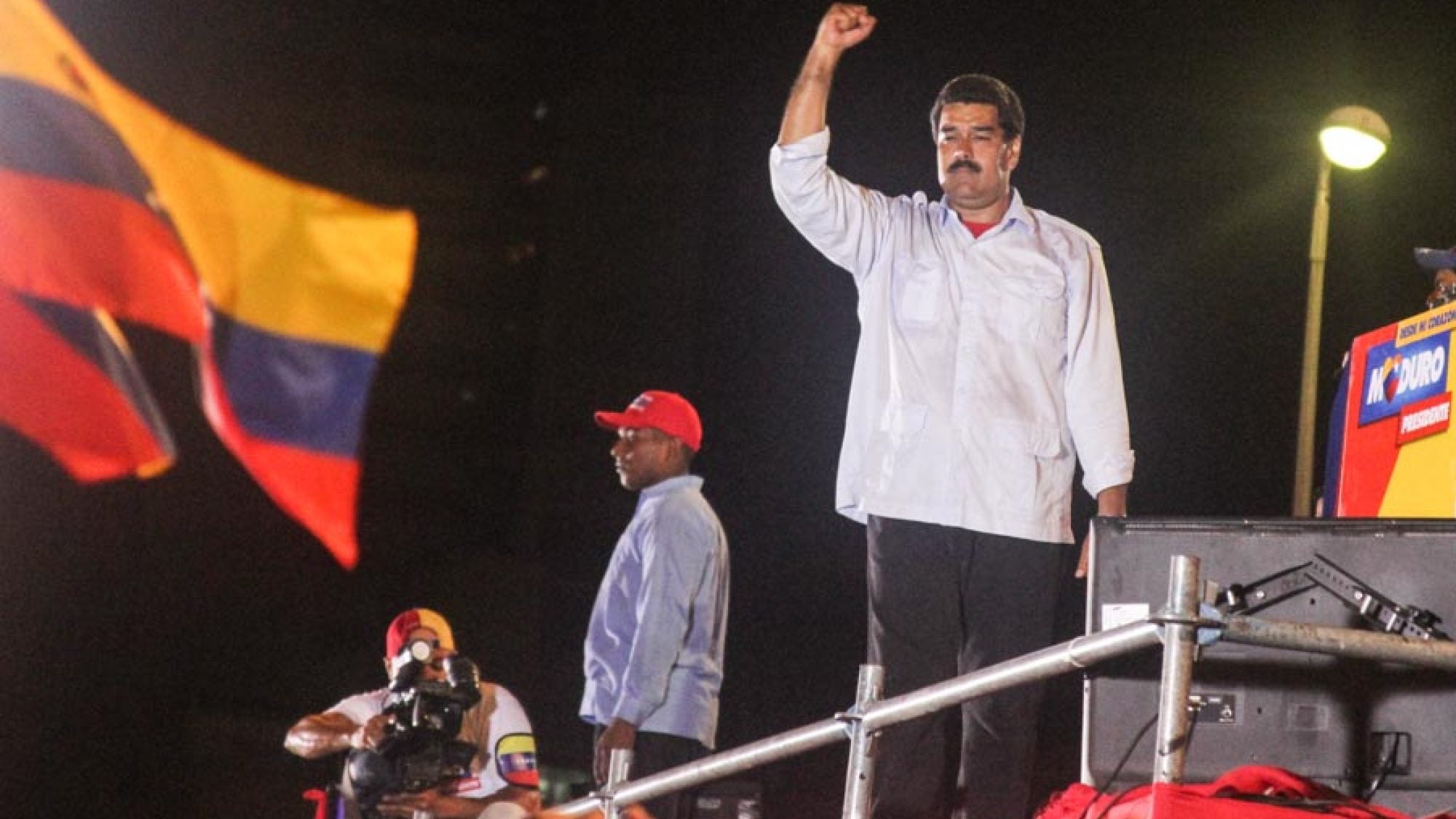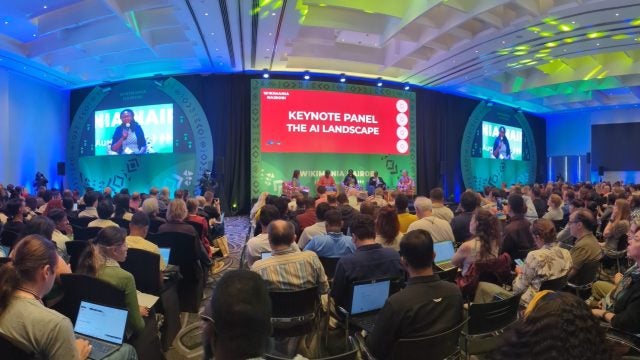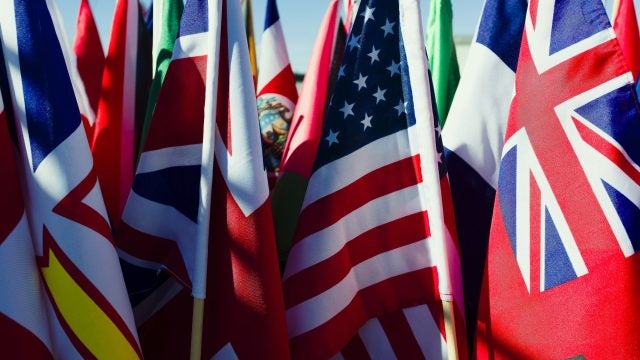
Title: Chávez and Vitriolic Rhetoric Still Prevail in Venezuela’s Elections
A month after the death of Venezuelan President Hugo Chávez, the future of Venezuela will once again be defined on April 14, as Venezuelans have the option to vote for any of the seven presidential candidates. However, Interim President Nicolás Maduro and opposition leader Henrique Capriles stand out from the pack (and so has Hugo Chávez, whose image has been exploited by Maduro and the chavistas—a name given to those who support a left-wing ideology based on the work and government style of the late Hugo Chávez—in order to clinch the presidential seat). Given the political competition and widely different political perspectives engaged in the race, it is disappointing that instead of a lively engagement on differing ideas and policies designed to change the course of Venezuela’s socioeconomict train wreck, the political atmosphere has lately been dominated by malicious discourse.
The future of Venezuela has remained precariously uncertain ever since Chávez took power in 1999. In the last 14 years, Venezuela has heavily relied on oil money thanks to its large petroleum reserves, but poor governance has led to shortages of cooking oil, meat, rice and medicine; a fragile banking system; and heavy public debt, which has increased five-fold since 1998, totaling 71 percent of the country’s GDP. During Chávez’s presidency, unemployment reached 8 percent, down from 13 percent in 1999. Venezuela ranked as one of Latin America’s top 10 countries in the Human Development Index, and the oil windfall helped Chávez create social-oriented programs for low-income families, which helped reduce Venezuela’s poverty level from 50 to 32 percent. Nevertheless, his heavy expenditures on social welfare and military artillery cast a shadow over other sectors that required attention, such as law enforcement efficiency and public safety. The explosion at the Amuay Refinery on August 25, 2012, also raised questions on how invested the Chávez administration was in overhauling its infrastructure, including the state of railroads nationwide. Venezuela’s 2.8 percent growth pales in comparison with Brazil, Chile, Peru, Argentina and Colombia, each of which had a GDP growth average of 3 and 5 percent between 1999 and 2011, according to the International Monetary Fund.
Instead of concrete solutions to Venezuela’s problems, accusation of murder plots, fear mongering, fable stories and name-calling exchanges have prevailed during the presidential race that has now entered its home stretch. In an attempt to highlight the image of Chávez, Maduro explained that the former comandante appeared in a shape of a bird: “I felt him [Chávez] there as if he were blessing us, telling us that today our battle begins. As I was praying in a small chapel in Barinas, suddenly a small bird entered and hovered around my head three times and chirped. I felt his spirit.” His comments became media and comedy fodder in social media platforms. Reaction to his child-like comments did not deter Maduro from using Chávez as his campaign springboard. Vive, one of the Chávez-leaning TV channels, broadcasted a one-minute-long animated footage that shows how Chávez arrived to a Socialist version of heaven and met legendary figures like Simón Bolivar, Ernesto “Che” Guevara and Evita Perón. Under the mantra “Chávez lives, the fight goes on!” and “I swear to you Chávez that my vote is for Maduro,” Maduro has proclaimed himself to be a “son of Chávez” as he rallies across the country with images of Hugo Chávez displayed on huge jumbotrons in stadiums and squares.
Maduro knows he must rely on the deceased leader’s presence; otherwise he won’t be able to garner as many followers to win the presidency simply because he doesn’t have the charisma Chavez was once known for. A website called Madurodice.com (Maduro says, in Spanish) counts the number of times Maduro mentions Chávez’s name (the count is at 7057 since he died). Right after his election on October 2012, Chávez named Maduro to be his successor should something occurred to him, saying Maduro is capable of carrying the Bolivarian Revolution’s torch. Maduro has met, however, some animosity even among his fellow chavistas, and some factions of Chávez’s United Socialist Party of Venezuela showed some support to Capriles, and it is very likely Maduro would suffer a low turnout on April 14.
Despite such outlook, Maduro maintains a 10-percentage point lead over Capriles, and his vitriolic, parochial rhetoric and actions to retain support very much resembles that of Chávez. He expelled two U.S. diplomats a few hours before he announced the death of Chavez on March 5, accusing both U.S. attachés of destabilizing the country. Maduro constantly blames the United States of having inflicted cancer on Chavez and accused former American diplomats of plotting to kill him. The same virulent rhetoric has been directed toward Capriles and the opposition, whom Maduro called a “Pharisee from the Venezuelan bourgeoisie that has derailed the economy,” and an “obsessed, silly boy” who has abandoned his governorship of the Miranda to pursue the higher office. Maduro also pointed out that whoever cast a vote in favor of Capriles “will be damned.” In response to Maduro, Capriles has called him a “liar” and a “toripollo (a big fool).” He is not alone in his criticism; renowned salsa singer Willie Colón composed the hit song “Mentira Fresca (fresh lie)” whose lyrics depict Venezuela’s economic woes at the hands of the chavistas.
Vitriolic rhetoric, the ubiquitous presence of Chávez, Maduro’s clear and unfair advantage derived from a biased judicial system and electoral commission, and the constant name-calling have not proven conducive to discussion of real and tenable proposals that could change the course of Venezuela’s socioeconomic strife. Insulting one candidate to another will not solve social maladies. Instead, Venezuelans will hopefully evaluate on April 14, based on the country’s realities, which candidate is capable—or incapable—of changing Venezuela’s gloomy future and foster true equality and prosperity.
Image Credit: Joka Madruga, CC BY 2.0 <https://creativecommons.org/licenses/by/2.0>, via Wikimedia Commons
This is an archived article. While every effort is made to conserve hyperlinks and information, GJIA’s archived content sources online content between 2011 – 2019 which may no longer be accessible or correct.
More News

This article compares U.S. and Chinese approaches to artificial intelligence (AI) exports in Africa and examines how these disparate approaches have produced both downstream benefits and challenges for the region.

On May 20, 2025, the World Health Assembly unanimously adopted the World Health Organization (WHO) Pandemic Agreement, an international treaty designed to strengthen pandemic prevention, preparedness, and…

As the Trump administration proposes a sweeping overhaul of the US foreign assistance architecture by dismantling USAID, the Millennium Challenge Corporation (MCC), and restructuring the State Department, there is an…